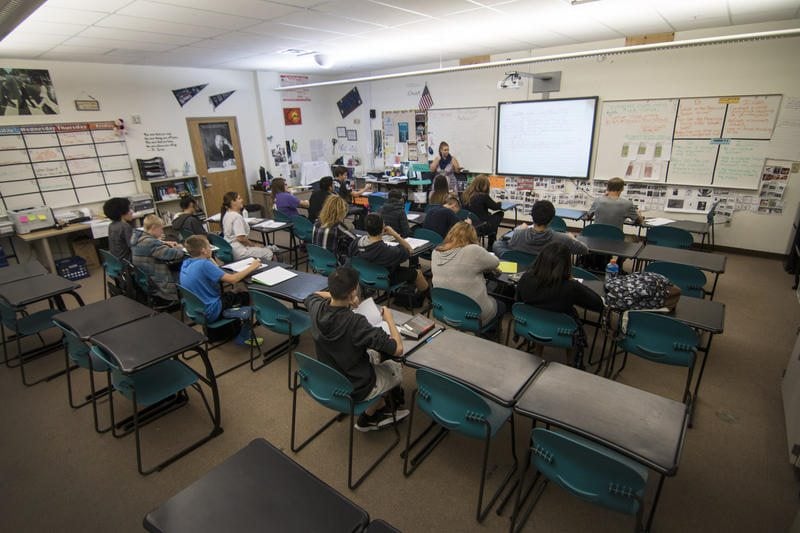
The final piece to the Washoe County School District’s high school sex education program, which addresses sexual orientation and gender identity, was approved Tuesday by trustees after a public hearing that lasted several hours.
The board voted in June to update the SHARE curriculum for the first time in 16 years, although the sexual orientation and gender identity lesson was put on hold then. Some said it was written too much from the LGBTQ perspective and didn’t include heterosexuals.
SHARE, an acronym for Sexuality, Health and Responsibility Education, is offered to students in fourth grade through high school and parents must opt their children into the program. It addresses human development, relationships, consent, abstinence, contraceptives and disease prevention, among other topics. As of last school year, approximately 80 percent of eligible students took SHARE classes.
The board agreed Tuesday that the definition of heterosexual, gay and lesbian, bisexual, queer and other orientations would be split from one slide projector film into five separate ones when addressing sexual orientation.
“Other” can include queer, asexual and pansexual. Queer is an umbrella term for those who don’t consider themselves heterosexual. Asexuals aren’t sexually attracted to anybody and pansexuals are attracted to males, females and transgender individuals.
District staff indicated that transgender isn’t a sexual orientation but how one understands their gender. That is addressed separately in the lesson’s subsection on identity.
Public Comment
Trustees heard public comment in support and against the lesson.
Jackie Shelton said one of her children came out as transgender two years ago and was fortunate to be surrounded by caring, informed adults and peers at school.
“I’m so grateful the people at her school were the people she had to help her through that because I didn’t know,” Shelton said. “All of these kids need access to rational science-based information. There are parents who will choose to deny their children that and that is their choice, but they do not have the right to deny my child and other children like my child access to this information.”
Chuck Grimm, executive director of Pathfinders Children’s Ministry, said his organization doesn’t discriminate and has some gay clientele. However, he said the SHARE lesson needs to incorporate more information about heterosexuality.
“The traditional view of gender identity, scientifically and spiritually, has until recently existed without any significant challenges,” Grimm said. “The current attack on it is both recent and most certainly not universally accepted within the scientific community.”
“Speaking as a straight guy, I don’t feel stepped upon by this.”
The lesson will include a preamble that states people have perceptions of their own sexuality and those of others and that some traditions believe one way while others believe differently. It also states that differences are common in diverse communities and that discussions are to be respectful and inclusive.
Wooster High School senior Nathan Noble, a student liaison to the board, said he’s spoken to teens in the community about the lesson and unanimous consensus is that it’s helpful and not exclusionary. It’s confusing why people are mentioning morality, religion and balance because “it’s not about any of that; it’s about education and there can be no balance between ignorance and truth,” he said.
“This is not about views or opinions, this is about facts and facts offer no moral judgment. If you look through this, it includes nothing but facts and definitions. These things are agreed upon,” Noble said. “Speaking as a straight guy, I don’t feel stepped upon by this.”

Washoe School
Board of Trustees.
Board member Angela Taylor said knowledge equates to safety and that every student needs to learn regardless of how they look, how they live and how they love.
“We want students of color, we want students who are poor, we want students who have language barriers, we want students who are disabled, we want LGBT students, we want straight students, we want people to see themselves in the lessons because you can personalize that,” Taylor said. “That sends a message that ‘I’m OK.’”
Trustees also voted to survey high school students upon completing each lesson so feedback could be used to make potential adjustments. Other previously-approved high school lessons are as follows: Making informed decisions, responsible use of technology, knowing options, sexually transmitted diseases, and consent and the law.
Information
SHARE curriculum for all grade levels:
https://www.washoeschools.net/Page/379

